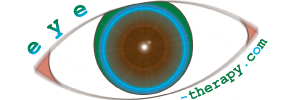
 | Aspire to inspire before you expire. |
Effects of Aging on Eyesight
There are several effects of aging on our eyesight. Hard to change focusThe lenses of our eye become less pliable, making it harder to change focus from the near to the far. Yellowing of the lensThe lens of the eye becomes more yellowish and starts to scatter light. The yellowish tinge will often change the look of other colors. For example, blues will seem darker and purple colors will seem more reddish. However, amazingly, our perception adapts and color vision is not affected much. That is, the world does not take on a yellowish tinge. However, blues will seem darker and purple colors will seem more reddish. ScatteringBright lights, especially in the blue region, are scattered by the eye. This can become disorienting, especially with strong oncoming lights like approaching traffic. It may be helpful to wear yellow glasses at night while driving to reduce the amount of blue light entering the eye and, therefore, the amount of scattering. Difficulty Seeing at NightThe yellowish tinge also absorbs a good deal of the light used for night vision, reducing our ability to see in low light levels. In low light levels, the rods are less sensitive to blue light and it becomes harder to see at night. Again, wearing yellow glasses at night may help with this.
Read more about the effects of aging on eyesight. |
|||||||
Home
Facts and Fiction
Resolution
Color and Eyesight
Benhams Disk
Chromatic Adaptation
Chromostereopsis
Color Blindness
Color Discrimination
Color Sensitivity
Gender Differences
Metamerism
Trichromatic Theory
Eye Color
Peripheral Vision
Blind Spot
Night Vision
Aging Effects
Hold Time Timing
|
   |
||||||
| Eye-Therapy.com |
DISCLAIMER: The information published here is for entertainment purposes only and is in no way intended to dispense medical opinion or advice or to be a substitute for professional medical care, be it advice, diagnosis or treatment, by a medical practitioner. If you feel ill or if you have a medical issue, you should consult a health care professional.
Site Map |
Terms of Use |
Privacy & Security |
Contact Us |
Purchase Agreement |
Send Feedback |